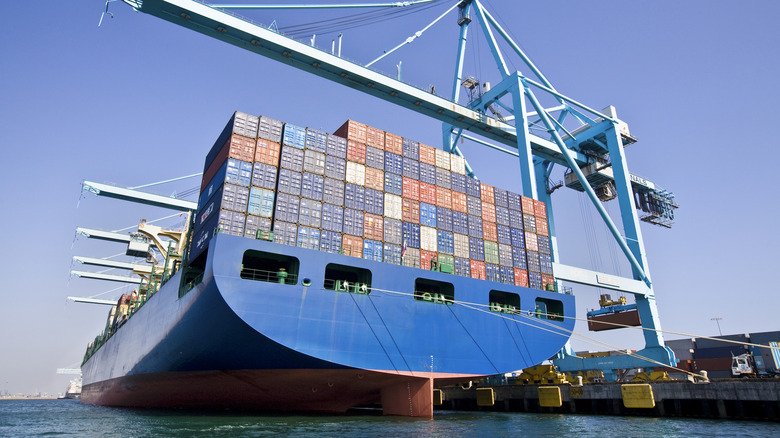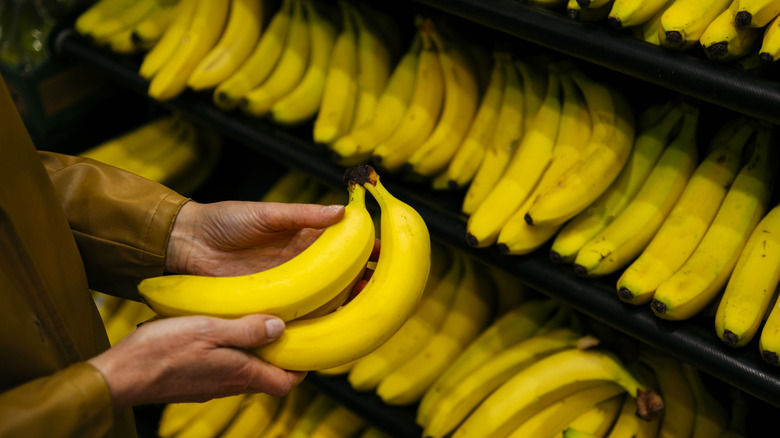How To Prepare Your Pantry And Fridge For The Port Strike
Americans woke up on October 1 with news that a major strike among U.S. Dockworkers could lead to supply and goods shortages. Many of us are still reeling from the shortages and hoarding that took place during the 2020 COVID-19 pandemic, but this time, it's not toilet paper and hand sanitizer that look to be sparse. Because the strike affects shipping ports, it's mainly imported items that may become hard to come by and are, therefore, worth seeking out sooner rather than later.
Chris Tang, a professor at UCLA who is well versed in supply chain management, told USA Today that he believes things like seafood, bananas, and alcohol could be among the most in-demand foods and drinks since huge numbers of these items are imported from overseas. Even seafood from Canada (which could conceivably arrive via train) is in jeopardy of shortages since it often needs to be refrigerated and is regularly shipped by boat.
Of course, domestic seafood and American beer, wine, and liquor are all options for those who enjoy such things, but the majority of bananas are shipped in from elsewhere. Associate professor of operations management at Southern Illinois University, Gregory DeYong, told Time that cherries, canned goods, hot peppers, grapes, avocados, and chocolate could also be difficult to find until the strike is resolved.
Why the strike?
When labor and pay negotiations between the International Longshoremen's Association and the United States Maritime Alliance could not be agreed upon, the strike began, and 45,000 union workers from 36 shipping posts around the country ceased work. Union members are seeking higher wages and an automation ban at ports. However, because these ports affect the supplies and day-to-day operations of many businesses, as many as 100,000 workers could be affected. It's estimated that the strike could cost the economy $5 billion each day that a solution has not been found, but long term effects could also be severe.
As we approach the holiday season, certain food supplies will become more and more difficult to come by if the strike continues, not to mention non-perishable items that are heavily imported like toys, electronics, auto parts, and even shoes. If you currently have food items that may be jeopardized soon, you can take measures to keep them fresh and edible. You can store bananas in the fridge or, for longer storage, peel, slice, and freeze them. You can also freeze cherries, chocolate, grapes, and avocados. As far as any canned foods you accumulate, you can rely on them for a long time as-is. Even though they are marked with dates, canned foods don't really expire.

